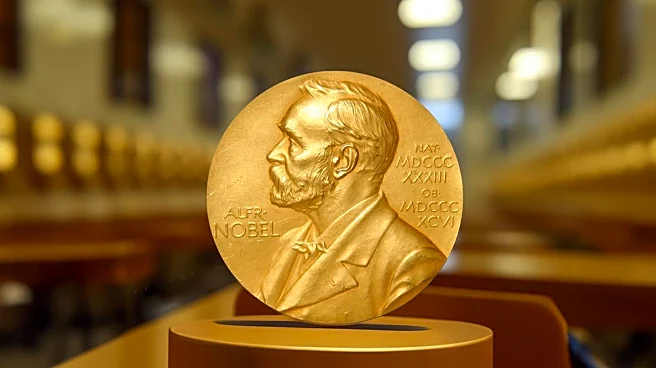What's Happening?
William Campbell, a Nobel Prize winner in Medicine, is celebrated for his contributions to global health through the development of Ivermectin. Born in Derry and educated in Belfast and Dublin, Campbell moved to the USA for postgraduate studies. He worked
at Merck's pharmaceutical laboratories, where he suggested that Avermectin, initially for animals, could treat human parasitic diseases. This led to the creation of Ivermectin, which effectively prevents River Blindness and Elephantiasis. Merck provided the drug for free, benefiting millions worldwide.
Why It's Important?
Campbell's work has had a profound impact on global health, particularly in developing countries. By providing Ivermectin for free, Merck and Campbell have improved the lives of millions, reducing the prevalence of debilitating diseases. This initiative demonstrates the potential for pharmaceutical companies to contribute to public health through ethical practices. Campbell's achievements highlight the importance of scientific innovation and collaboration in addressing global health challenges, inspiring future research and development in medicine.
What's Next?
The success of Ivermectin in combating parasitic diseases may lead to further research and development of similar treatments. Pharmaceutical companies might explore partnerships with non-profit organizations to expand access to essential medicines. Campbell's legacy could inspire new generations of scientists to pursue innovative solutions for global health issues. Continued efforts to eradicate parasitic diseases may result in improved health outcomes and economic development in affected regions.
Beyond the Headlines
Campbell's contributions underscore the ethical responsibilities of pharmaceutical companies in addressing global health disparities. The initiative to provide Ivermectin for free reflects a commitment to social responsibility and humanitarian values. This approach may influence industry standards, encouraging companies to prioritize public health over profits. Campbell's work also highlights the role of scientific research in fostering international cooperation and improving quality of life worldwide.














